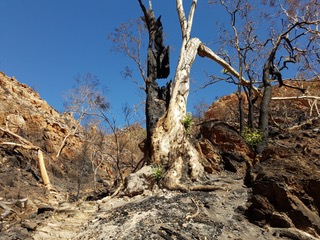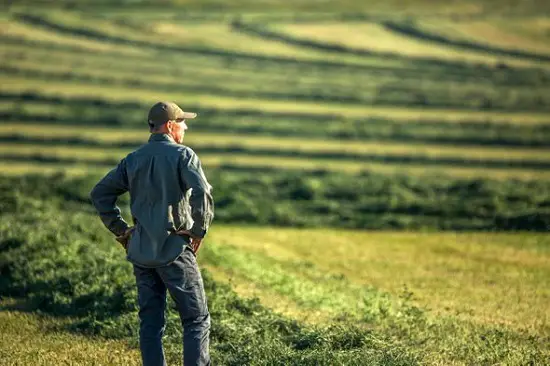In The Costa Rica News (TCRN), we have been constantly making known everything that happens in Costa Rica from a positive perspective, like for example in the field of biodiversity, national parks, and the struggles against human actions that damage our environment. In this article, we are going to ponder what today is positive for some and others worrisome, the debates about climate change.

From October 8th to 10th, our country was for the first time host of the “PreCOP25”, which was part of the preparatory meetings for the 25th Conference of the United Nations Framework Convention Climate Change (COP25-UNFCCC), to be held in Santiago, Chile this December.
A total of 1,500 people were present, delegates representing more than 90 countries and more than 60 panels with 264 panelists on topics from blue carbon to electric mobility. More than 25 ministers arrived at this PreCOP (when no such meeting had succeeded in attracting other ministers beyond the organizing country). Among them Ministers and other delegations from Spain, Finland, Germany, European Union, Singapore, South Africa and Chile, Ministers of environment and agriculture of Central America, Indigenous communities and youth groups.
Various organizers stressed that the goals of “Nationally Determined Contributions” (NDCs) in each country should be increased. They recalled that the fundamental three axes of the conference: nature-based solutions, sustainable cities, and the blue economy.
Regarding the blue economy, the conference covered issues such as coral reef restoration, ocean science production and coastal communities in the face of the climate crisis. A panel of experts stressed that it is possible to achieve 30% of the planet’s surface protected by 2030 through this strategy, with actions such as reforestation and ocean management. Natural areas conservation and restoration, which has remained in the background in the fight against climate change, maybe part of the response to protect the earth’s resources and provide a path to sustainability and food security.
It should be noted that the 86 participating countries in COP25-UNFCCC have not yet reached any specific agreement or issued any official joint document. The meeting in Santiago (Chile) will be the last annual meeting between countries before the implementation of the Paris Agreement in 2020.
Some contradictions must be clarified.
Beyond what President Carlos Alvarado has emphasized, on what he considers a challenge concerning what was stated in the PreCOP25, “What some today call impossible, we will make it possible. It’s time for exceptional actions and that’s what we’re here for”, he said.
Ecologists and human rights activists concentrated before the PreCOP25 at the Convention Center in Belén, demanding that the Alvarado Government leave its double speech and take the necessary measures to address the great ecological problems that arise in the country, as well as putting an end to his (the President’s) supposed complicity with extractive mining companies and their destructive practices.
Debates on the fight against the climate crisis and decarbonization in Costa Rica.

On September 27th, the press conference called “Results of the global action for the climate crisis in Costa Rica”, was held at the Ecumenical Research Department (DEI), Sabanilla (Costa Rica). The activity was attended by various social organizations, politicians and community representatives like: “Fridays For the Future Costa Rica”, “Coeco Ceiba Friends of the Earth Costa Rica”, “National Front of Sectors Affected by the Piñera Production”, “Las Rojas”, “The Talamanca Movement Life and For the Earth”, and of course, “The Costa Rican Federation for the Conservation of the Environment” (Fecon). The debates took place during the “Global Actions against the Climate Crisis”, where the organizations of our Central American country offered their balance about the negotiations at the Climate Summit in New York.
Regarding the results of the “Week of Global Action Against the Climate Crisis in Costa Rica”, the President of the Ecological Federation (Fecon), Henry Picado, highlighted the need to bring the issue to a national discussion as well, “above all because many contradictions have been generated”, “for us as a network of organizations that have been working within the country for more than 30 years, it is very significant”.
Gabriel Rivas (Biologist) belonging to the “Coecoceiba, Friends of the Earth” and “Fecon”, in his speech recalled that the fight for climate justice and decarbonization did not start today, the fight in Costa Rica began in Talamanca with the women indigenous people who opposed oil exploitation in the mid-70s thru the early 80s. “It must be the main premise in our fight against climate change and decarbonization, the provision by the law of banning further oil exploration and exploitation. In 2000, Costa Rica was able to issue a moratorium on oil exploration, these thanks to the struggle of popular organizations “.
The Biologist Rivas, emphasized that if we want to fight against climate change, we must be radical, that is, go to the root of the problem.
More actions.

Various ecological organizations in Costa Rica signed a document, which highlights that agroecology is the most successful path to fight the climate crisis. They talk about agriculture based on indigenous and peasant knowledge that has fed the world for centuries without damage to the environment and that should be at the center of climate discussions and solutions. They emphasized varying figures, reflecting, that looking towards agriculture in times of climate crisis it is very important.
Agroecology is known as the study of ecological processes applied to agricultural production systems. Through it, ecological principles are applied when evaluating agro-ecosystems. The term is often used inaccurately to refer to “a science, a movement, or a practice.”
Parallel to the PreCOP25, environmental organizations held a debate in San José called “Building Climate Justice and Energy Transition from an Environmentalism Perspective”. In the activity, various topics were discussed, among them: “From the oil era to the post-oil era”. “Ambitions and hypocrisies” by Gabriel Rivas. “Coecoceiba, Energy matrix in Costa Rica: steps for a fair energy transition” by Osvaldo Durán. “Proal, Readings from Environmentalism to the National Decarbonization Plan”. And “The good, the bad and the ugly, proposals of the communities in the face of the climate crisis” by Mariana Porras (FECON).
Henry Picado, President of FECON, said that the activity was parallel to the PreCOP25, due to contradictory internal provisions of the Climate Change organization decisions. “They canceled an activity where we were going to participate; this is a signal that they are not open to debate “.
Young people have to understand.
The former executive secretary of the United Nations Framework Convention on Climate Change, Christiana Figueres Olsen, made a call in the PreCOP25 to young people: “they (the young) have great power that is not being used, I invite the youth to use it”. Figueres is recognized for achieving the unthinkable: those 175 countries commit to maintaining the global temperature of the planet below 2 °C concerning the pre-industrial era. She is an anthropologist and economist.
Figueres expressed, “we have to understand that healing the environment is our best guarantee of a prosperous future and that the seventy governments that are committed to climate change mitigation actions represent only 10% of the world’s emissions, actions must be taken to incorporate more nations to this agreement”.
Figueres helped launch the decarbonization plan, about it she says: “more than decarbonization it is a plan to modernize the economy of Costa Rica, it is a very ambitious plan that was written and viewed from the perspective of where we need to be in the future, now the big responsibility is how are we going to execute it and the steps there are not clear yet, what we do know is where we have to go ”.
At TCRN we agree with Christiana Figueres, that everyone has to realize, that the environment is not separate from us as humans, we depend on a healthy and stable environment. There is an interrelation between human beings and the environment that is endearing and indivisible.

